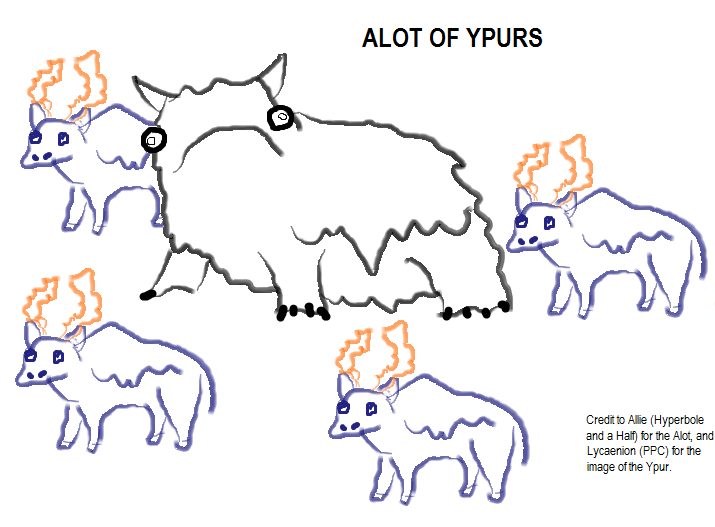Some of which may be mutually exclusive. ;)
1/ Why do you think they couldn't talk? We know from all five hobbits that orcs talk, and in an idiom that Tolkien translated as something very close to how the trolls speak. Granted, they probably weren't named 'Bill 'uggins', but that's a translation issue too.
Wait, there's a 1.5 too/ That said, talking trolls are a part of Shire folklore - 'Troll sat alone on his seat of stone' and so forth - so it's entirely the sort of thing Bilbo might have added.
2/ Other things Bilbo might have, uh, misrepresented: how about all that singing? We know he was very fond of songs, so we can accept that he would have sung a lot (though if memory serves, he doesn't). And the hobbits in his circle could well have caught the bug, so they're fine. In fact, all the songs in LotR are justifiable as a racial hobby (hobbits, elves, ents) or a special occasion (the Rohirrim). They also all fit the cultures they're in.
The songs in The Hobbit? Nnnnot so much. Singing orcs, singing dwarves, all of whom sing in Hobbittish ditties? Not a chance. I'd guess Far Over The Misty Mountains Cold is a real song, but the rest of them are just Bilbo's pen running away with him.
3/ And it's not just Bilbo! The Middle-earth stories are semi-unique, in that the writing of the modern book is part of the fiction too. And that means Tolkien can be an unreliable narrator - or rather, a better novelist than he is translator.
For instance, we know that Bilbo's story started life as his diary - the title is still on the front cover. Who writes their diary in third person? I'm guessing that Bilbo's entire work - and that's everything up to Frodo reaching Rivendell, mark you, since we know he caught up with Frodo then and wrote it all down - was written in first person, and (in the case of 'The Hobbit') as and when he had a chance to scribble something in.
So, for instance, everything from being captured by goblins to being rescued by eagles could've been written at Beorn's house. Which means the early parts may have been quite quickly covered, since Bilbo probably forgot about the details. So Tolkien had to embellish.
For specific instance: the riddles. I'll accept that Bilbo wrote 'Got into riddling contest with slimy Thing. It asked me riddle about mountain. [etc] It asked me one that stumped me, and pressed me, so I called out for "Time!", and that of course was the answer.' But I refuse to believe he wrote down the actual riddles - which explains why some of them are Old English riddles.
Of course, the sparseness of Bilbo's account means that all Tolkien had to do was 'fill the gaps'. When he got to Frodo's far more complete work, his changes got a little more... involved.
Things added by JRRT
-Boromir. Boromir exists solely to be a mirror of Aragorn - in fact, to allow Aragorn to sit firmly in the role of 'Anglo-Saxon hero', with none of that icky 'being tempted'. But people don't actually come as mirrors. Clearly in the original, Aragorn tried to take the Ring - and didn't receive any punishment for it, but went on to rule the world.
-Faramir. Faramir consists in equal parts of mirror to Boromir (who never existed), plot device for feeding Frodo ( the real world doesn't have plot devices), and self-insert (need I say more?). We also have an explicit statement by Tolkien that he created him, so there's that. ;)
-Tom Bombadil. He's a children's doll, and Tolkien needed something to fill time. This of course means that Frodo's escape from the Barrow Downs was probably effected in some other manner. My theory is that the great disappearing character, Fatty Bolger, originally went with the other four - and then died in the Barrow. But that's too depressing, right?
-All the history. We know Tolkien was working on his Book of Lost Tales long before he got his hands on the Red Book. That means that everything we know about the First Age is a Tolkien invention - and its mentions in the narrative are either Tolkien additions, or changes to what was really said about history...
hS

